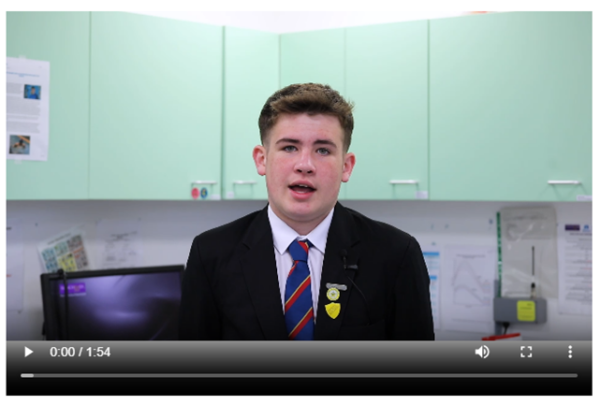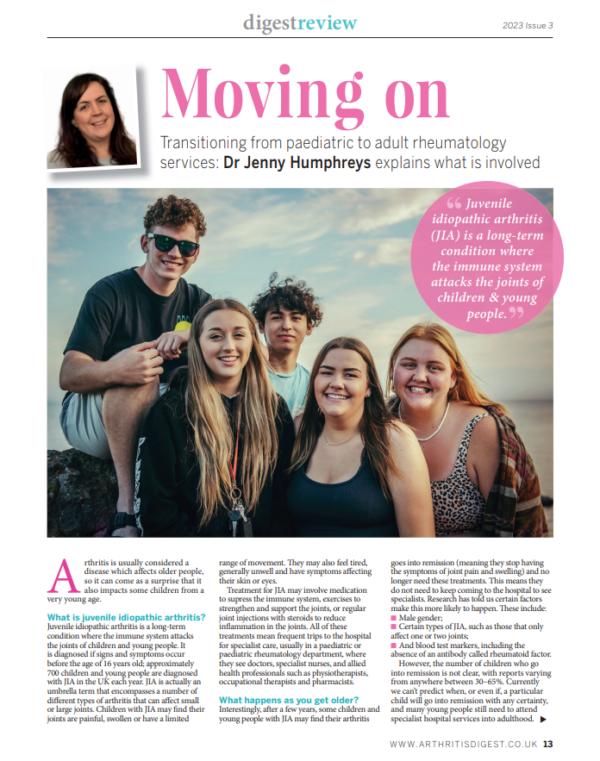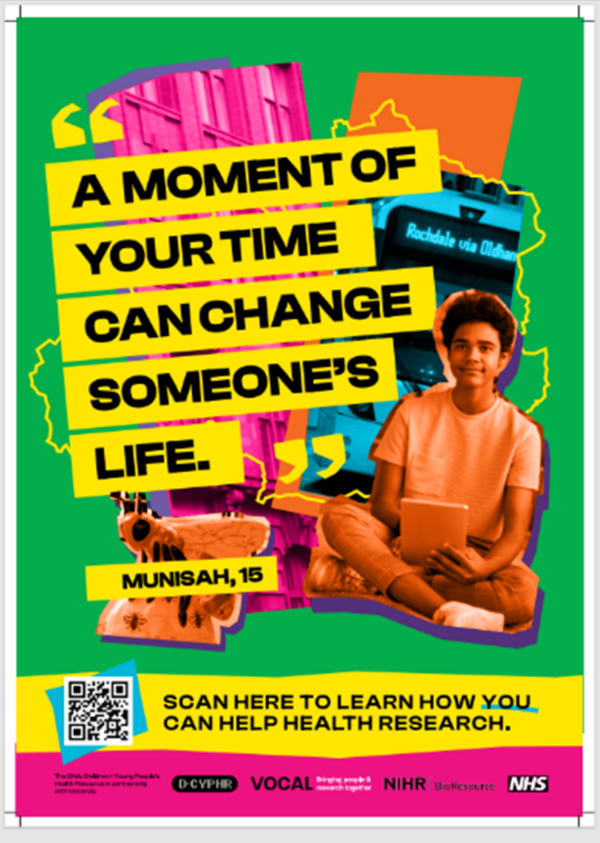Embed, Build, Accelerate – Manchester BRC Director’s blog – April 2025
Hello and a very warm welcome to my latest Embed, Build, Accelerate blog as the Director of the National Institute for Health and Care Research (NIHR) Manchester Biomedical Research Centre (BRC).
In this edition of Embed, Build, Accelerate, I want to focus on one of our emerging areas for Manchester BRC – Children’s Research, and what we are doing to advance discoveries that improve the health and wellbeing of children and young people across Greater Manchester, Lancashire and South Cumbria.
Children and young people aged 0-19 years make up around a quarter of the whole population of England, and this is set to increase. These young people deserve the best start in life and at Manchester BRC we want to champion the importance of physical and mental health. From understanding more about rare conditions to tackling childhood mental health problems, and from improving respiratory care to pioneering breakthroughs in juvenile arthritis and hearing health, we are committed to making a difference.
We have a wealth of expertise across our Themes and disease areas, and here are some of the ways we are working collaboratively with clinicians, researchers, young people and their families, industry partners and the wider community.
With 75% of rare conditions which cause chronic disability affecting children, we want to deliver improved diagnostics and personalised disease-specific, effective treatments. This will enhance our understanding of impacts and outcomes, and we currently have several active trials in our Rare Conditions Theme investigating conditions including Niemann Pick Type C, Gaucher Disease, Hurler syndrome and metachromatic leukodystrophy (MLD). We are also exploring the needs of adolescents impacted by rare inherited cardiac conditions.
Within our Next Generation Phenotyping and Diagnostics Theme, Co-Theme Lead Professor Rachel Lennon is a Consultant Paediatric Nephrologist at the Royal Manchester Children’s Hospital, part of Manchester University NHS Foundation Trust. She leads a basic science research team and clinic for young people with the collagen disorder Alport syndrome and works with patient organisations and industry colleagues to improve diagnosis and treatment options for children.
As part of our Hearing Health Theme, we are working on a range of research projects with families and children, from improved diagnosis and management of hearing loss in babies, to working with teenagers to better understand recreational noise and hearing damage. We are also examining how inflammation affects cochlear implant outcomes.
Asthma and other allergic disorders are among the most common chronic childhood diseases in the UK. Manchester BRC runs the ‘Rapid Access Diagnostics in Asthma’ (RADicA) study which is trying to find the best ways to diagnose asthma. You can watch this fantastic video which explains more about our asthma research and how our Respiratory Medicine Theme contributed to improved NICE diagnostic guidelines for identifying and managing asthma.

The University of Manchester also hosts the Children and Young People’s Theme of the NIHR and Office for Life Sciences Mental Health Mission (MHM) – an ambitious national project aiming to transform child mental health research.
Individual Manchester-based MHM projects are closely integrated with the work programmes in our Mental Health Theme including biomarker identification in a rare genetic condition, Neurofibromatosis Type 1, and exploring the effects of early childhood trauma on neurobiological markers of mental health during adolescence and into adulthood.
Colleagues are also working with a national Children and Adolescents Data Resource (CADRE) initiative, to deliver innovative digital infrastructure across Greater Manchester as a trusted research environment for researchers, NHS Trusts and industry partners.

We are looking into the onset, outcomes and response to treatment for young people with juvenile idiopathic arthritis (JIA) as part of our Rheumatic and Musculoskeletal Diseases Theme. Dr Jenny Humphreys explains what is involved during the transition from paediatric to adult rheumatology services for people with JIA in this previous article.
Understanding the risks of poor mental health outcomes in survivors of paediatric, teen and young adult cancers to help target interventions and improve care forms part of the work of our Living With and Beyond Cancer Theme. Current PhD student, Moe Zandy, is investigating the risk of developing mental health conditions among young people diagnosed with cancer, which you can read about as part of our PhDs in Focus series or find out more through this short video.
Through our Advanced Radiotherapy Theme, we have developed a dedicated research facility within the UK’s first high energy NHS Proton Beam Therapy (PBT) Centre at The Christie NHS Foundation Trust. PBT is the preferred method for children, teenagers and young adults compared to conventional radiotherapy due to reduced toxicity.
The NIHR BioResource study, D-CYPHR, aims to create a national resource of samples and data from children and young adults aged 0-15 years in order to help research into conditions that start in childhood. Voice Up, Vocal’s dedicated young people’s group supported by Manchester BRC, worked with Oldham-based youth centre Mahdlo Youth Zone to co-produce new materials which encourage young people to get involved in research, targeting our local population. This work was funded by the Greater Manchester Research Engagement Network. For more information about working with Voice Up please contact the Vocal team at vocal@mft.nhs.uk
To demonstrate our commitment to children’s research, in 2023 we launched a Core Pump Prime Funding scheme to fund areas of strategic interest. In that year, we awarded a project to examine nerve cells from children with a rare condition, to try and understand why these children carrying a gene called RCC may suffer from extreme nerve damage. In 2024, we invested in two projects; developing a simple test to improve diagnosis of Adrenal Insufficiency in children (as an alternative to the hospital test) and trialling modified methods for infant hearing testing to help improve engagement and outcomes.

For 2025, we focussed on mental health of teens and young adults living with long term chronic conditions. We are currently in the review process and will award the successful project in the coming weeks.
Voice Up members also reviewed and fed back on shortlisted applications.
Led by our Children’s Research Lead, Dr Emma Woodward, supported by a Strategic Projects Manager, Lynsey Priest, we have established a working group to bring all these exciting projects and researchers together and to drive this work forward under our strapline; Grow Together, Shine Forever.
This group will be developing our future strategy and planning an event in November to help shape a set of core objectives for children’s research. Children are the adults and healthcare users of the future and it’s vital that we enable young people to become healthier adults. We will keep you informed on our progress.
You can stay up to date with the latest news from Manchester BRC by following us on LinkedIn, on X via @ManchesterBRC or read the latest news on our website.
Thank you